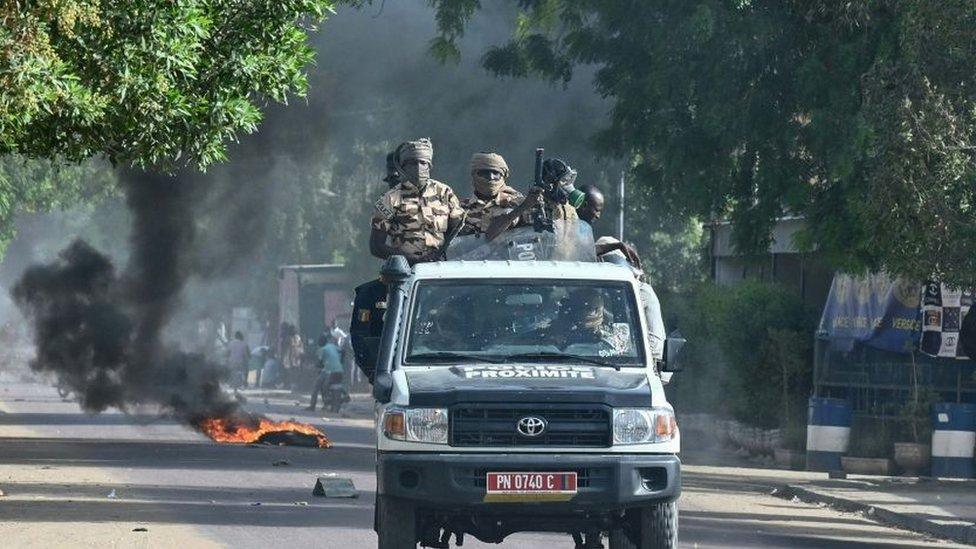Black Thursday: Chad grants amnesty to police who killed over 50 protestors
- Published

Some of those arrested were subjected to torture, rights groups say
Chad's military-led government has issued an amnesty to security forces responsible for killing at least 50 opposition protesters.
In 2022 people took to the streets to oppose interim President Mahamat Idriss Déby Itno extending his rule.
The authorities responded with a brutal crackdown which officials say left 50 people dead on what has been called "Black Thursday".
Human rights groups put the number of dead much higher, at more than 300.
More than 600 people were arrested, including 83 minors, and sentenced in mass trials.
The amnesty is part of a deal signed with opposition leader Succès Masra to foster national reconciliation.
But some members of the opposition have criticised it, describing it as an attempt to evade justice.
"It's just an intelligent way for the junta to cover its crimes on the altar of peace and reconciliation," Yaya Dillo, president of the Socialist Without Borders Party, told the BBC.
He is encouraging victims of last year's incident to seek judicial redress at international levels.
More than 943 people were arrested and 265 convicted, according to Amnesty International.
Those convicted were found guilty of "unauthorised assembly, destruction of property and arson".
In April 259 were pardoned and released by the president.
President Déby was proclaimed leader of the central African country following the death of his father, in 2021, who ruled Chad with an iron fist for 30 years.
He promised to return power to civilians through elections at the end of an 18-month transition period.
But at the end of the transitional period he extended it by two years, sparking the protest.
There have been renewed promises that the government will announce a date for free elections in December and move to civilian rule.